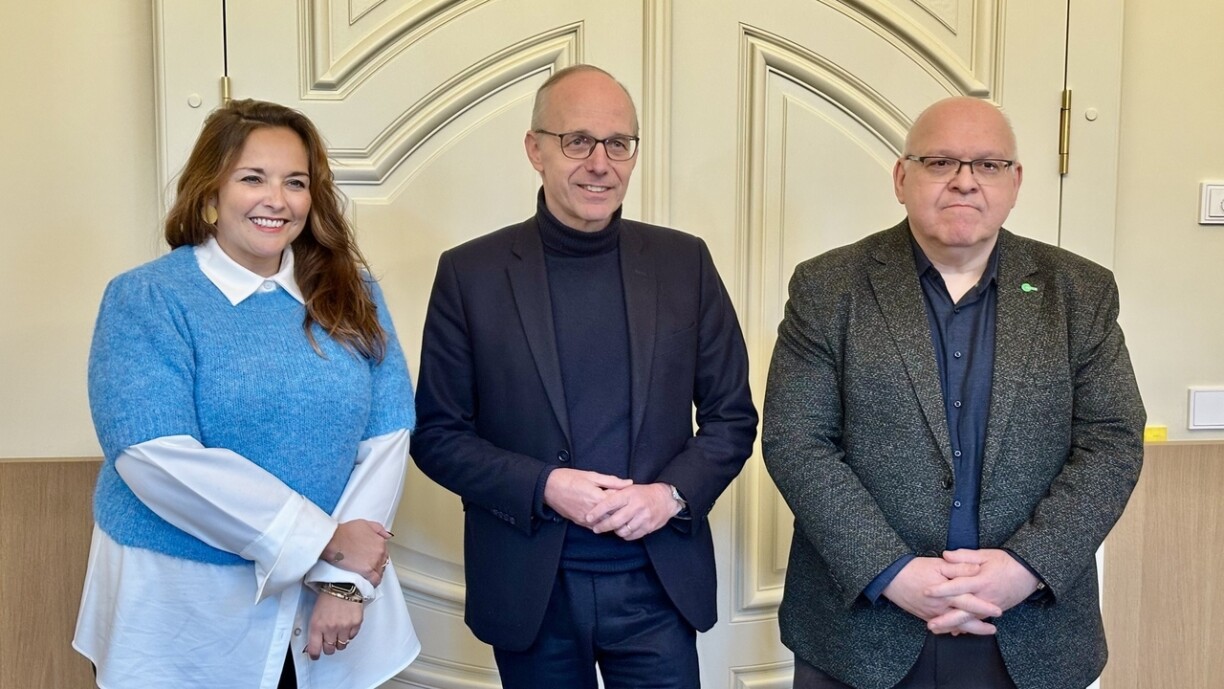
Following a two-hour meeting on Tuesday with the presidents of the Independent Luxembourg Trade Union Confederation (OGBL) and the Luxembourg Confederation of Christian Trade Unions (LCGB), Prime Minister Luc Frieden expressed the government’s commitment to resolving social issues through dialogue rather than conflict. As a step forward, Frieden announced plans to organise a “major social roundtable discussion” in the coming weeks or months.
The meeting marked a potential turning point after four months of strained relations between the government and trade unions. Tensions had escalated over several contentious issues, including the exclusive right of trade unions to negotiate collective agreements, Sunday working hours, and shop opening times. Union leaders had even raised the possibility of a general strike if their concerns were not addressed.
Regarding collective agreements, the government eventually guaranteed that unions will retain the exclusive negotiation right, but there are still plans to “modernise” collective agreements. In practice, this could mean that certain elements could be negotiated directly with staff instead of through collective agreements.
However, the tone appeared to shift after Tuesday’s closed-door discussions at the Ministry of State. Prime Minister Frieden emphasised the government’s determination to “move forward through dialogue, not argument,” with the goal of strengthening Luxembourg’s future. He also underscored the importance of social dialogue and social peace, describing them as “extremely important” for the country’s stability and prosperity. In this context, Frieden admitted that social dialogue was not handled as well as it could have in recent months.
Frieden highlighted that social stability is one of Luxembourg’s key assets, setting it apart from neighbouring countries like France, Germany, and Belgium, where political instability has been more pronounced. This stability, he argued, is crucial for attracting investment and maintaining Luxembourg’s competitive edge.
The upcoming roundtable discussion will involve relevant ministers to address pressing social issues through “constructive dialogue.” Frieden deliberately decided not to use the term “tripartite,” noting that the format of tripartite meetings is a “crisis management tool.”
Prime Minister Luc Frieden acknowledged that achieving social peace requires open discussions with trade unions, employer representatives, and political parties. Key topics include the organisation of work, pensions, and a range of other social issues aimed at modernising Luxembourg and adapting it to global developments. Frieden cited evolving international dynamics, such as the relationships between China, the United States, and Europe, as examples of the need for adaptability. He also emphasised the importance of addressing societal changes, noting that lifestyles, family structures, purchasing behaviour, and the balance between work and personal life have evolved significantly over the past two decades.
OGBL President Nora Back described the meeting as leaving her with a “positive feeling,” as the unions felt heard and secured a commitment from the Prime Minister. “There is a clear desire on the part of the government to find compromises and solutions,” she said, adding that Frieden is “trying to reconcile the parties.” However, Back cautioned that while the dialogue was constructive, “there has been nothing concrete, no results yet.”
LCGB President Patrick Dury echoed the sentiment, calling the meeting “constructive” but highlighting a difference in approach to social dialogue. He noted that for the government, the process appears to be “more a question of consultation,” whereas for the trade unions, it is about “agreeing to work in a certain direction to achieve a result.”